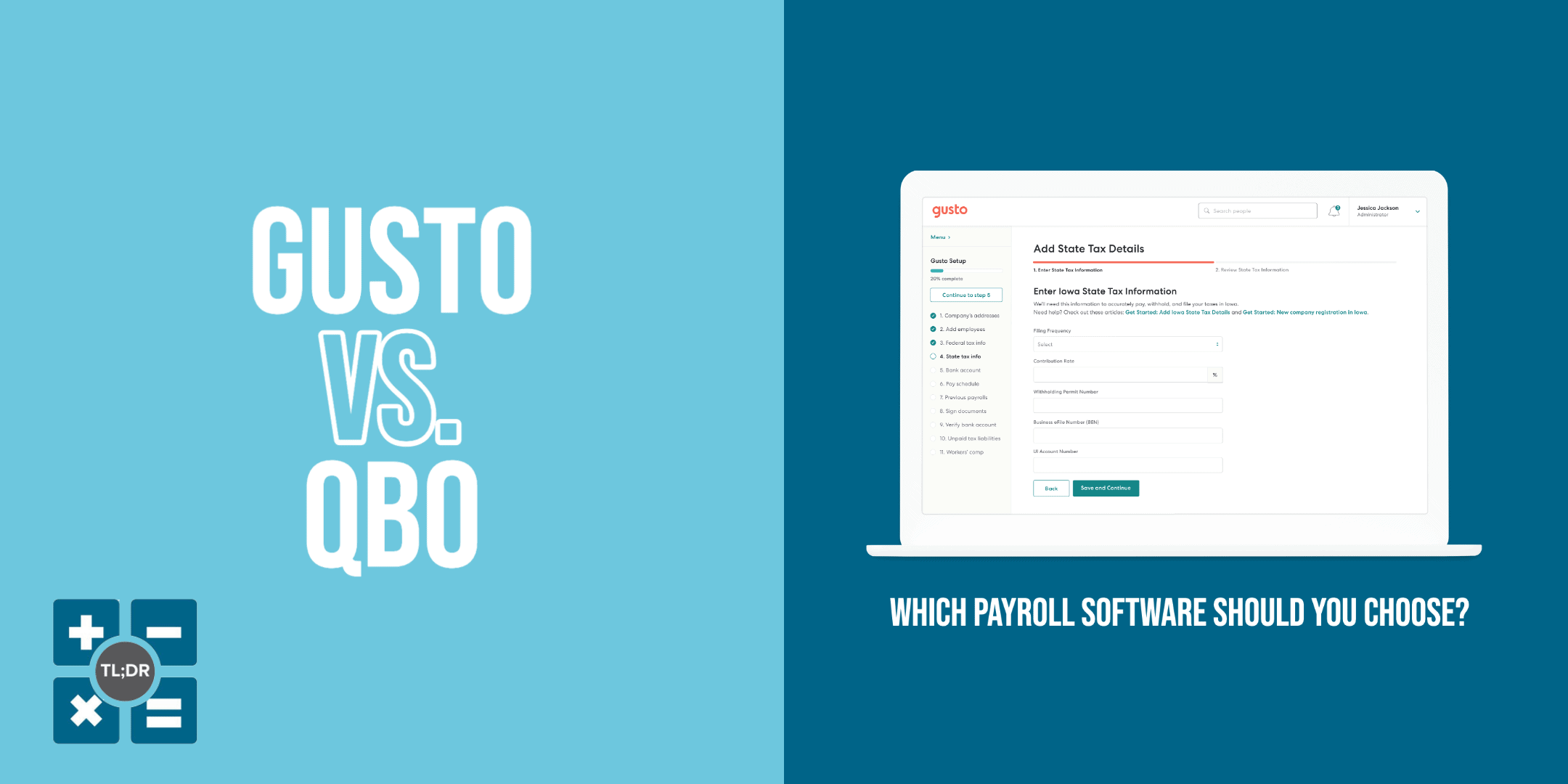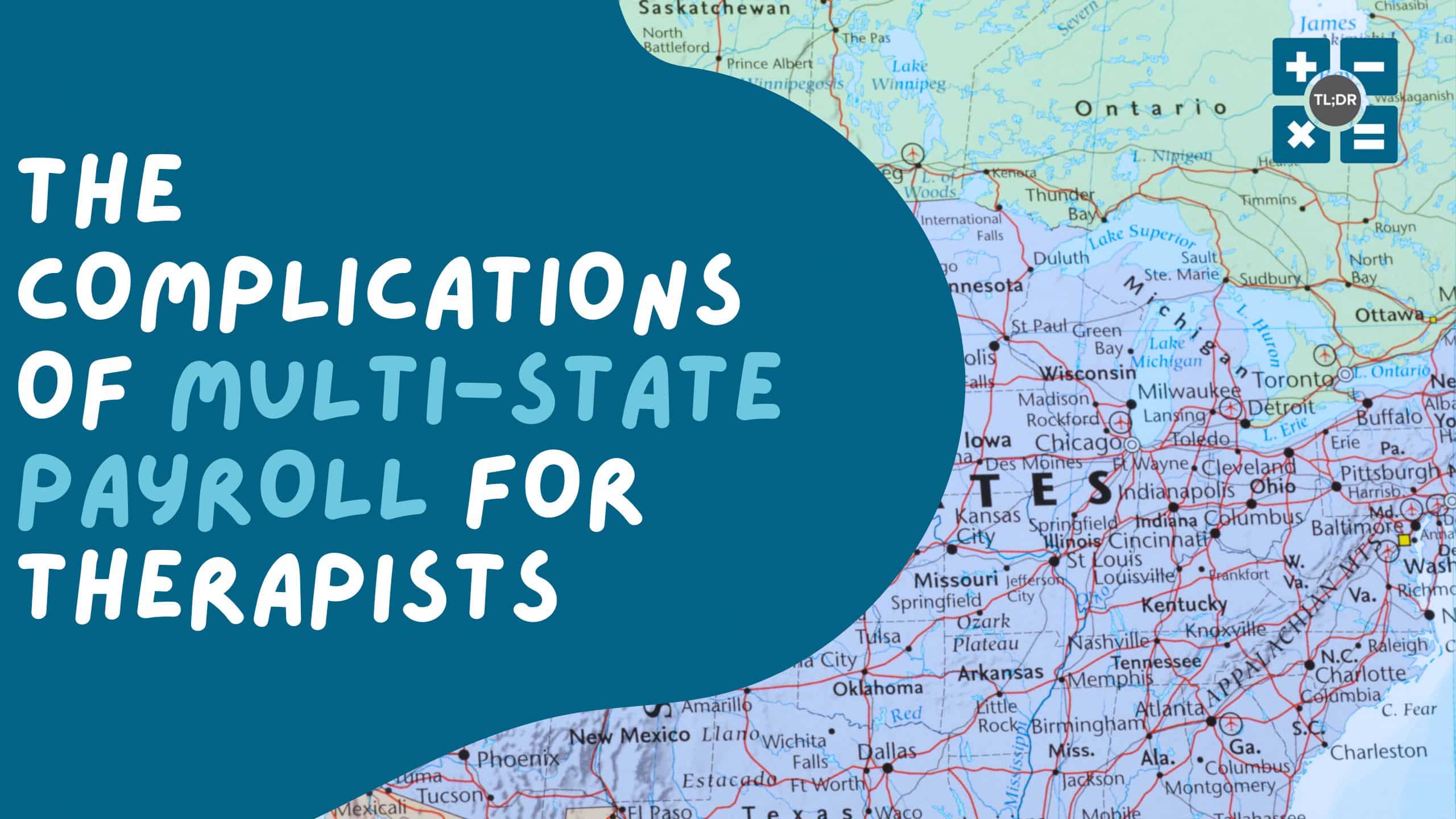So you’ve hired some employees (or you’ve had employees for a while) and you’re considering getting some kind of payroll software.
Let us stop you right there: definitely get some kind of payroll software. Trying to do payroll manually is simply not cost-effective at all, especially since there are now many great options that automate so much tedious calculation.
…but if you take our advice and decide to get some payroll software, which package should you choose?
For the purposes of this article, we’re going to cover two of the most popular payroll services out there: QuickBooks Online Payroll and Gusto. Spoiler alert: we at TL;DR use Gusto, and we require all of our clients to use Gusto as well.
That said, this article is not sponsored, so let’s dig into some pros and cons of both options. Since we use Gusto, we’ll do pros and cons of Gusto as opposed to QuickBooks Payroll.
Prefer to watch on YouTube? Check out our video here:
Pros of Gusto:
- Perhaps most importantly for us Washington people, Gusto will complete your Washington State tax forms. QuickBooks will file forms for certain other states, but WA forms are a bit more complex and hence QBO will simply not do them for you.
- Gusto doesn’t nickel-and-dime you for additional services. Even the cheapest Gusto package (Core) has many features that would cost extra if you used QuickBooks Payroll. Examples: 1099s, W-2s, and new hire reporting.
- One feature that is not included in Core, but can be quite useful, is built-in employee time tracking. Gusto time tracking is simple to use, but may lack features you need such as mobile time tracking or tracking time for different customers or jobs.
- Gusto is designed to integrate with multiple bookkeeping applications, as opposed to QBO payroll which (understandably) is only meant for QBO.
- Gusto offers benefits packages, and will help ensure you are compliant with COBRA requirements (COBRA is the program that requires you to offer continued health insurance at cost to terminated employees).
- In our opinion, Gusto customer service is higher quality than QBO’s customer service. We have gotten conflicting information from different QBO customer service reps, but (*to my knowledge*) this has not happened with Gusto.
- You will see below that QBO Payroll integrates well with QuickBooks Online (of course). There is a flipside to this though: while Gusto integration is limited to one journal entry per payroll, QBO Payroll has the power to really fiddle with your books because it can automatically create multiple transactions per employee per payroll. In one real world example, we’ve seen it riddle a company’s books with countless one-cent adjustments. This kind of phenomenon could make it difficult to reconcile your payroll bank account.
Cons of Gusto:
- Naturally, QBO payroll is going to integrate with QBO better than Gusto. When you import things from Gusto, there may be journal entries that you will have to edit every payroll.
- If you are a true blue Do-It-Yourself payroll person, QuickBooks Self Service can save you a little bit of money.
- Gusto defaults to a 4-day turnaround for getting money to your employees. You have to request and qualify for 2-day payroll, which QBO has by default. QBO also has the option for same-day payroll for an extra charge.
TL;DR: If you do payroll, do yourself a favor and purchase a payroll software package, but which one?
For Washington State businesses, having Gusto do your state tax filings is incredibly helpful. That said, QuickBooks is still in the running and can be helpful for your business. Just keep an eye on the kinds of transactions that QBO Payroll is making, as it has the power to automatically make extra transactions every payroll.
Are you a Washington state small business? Here’s how we can help.






